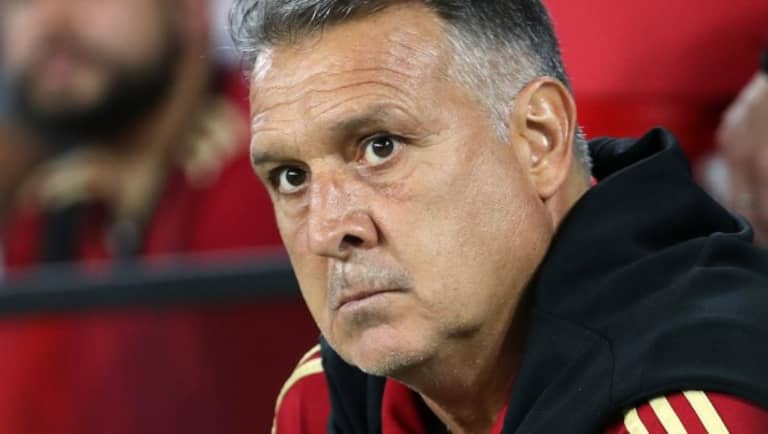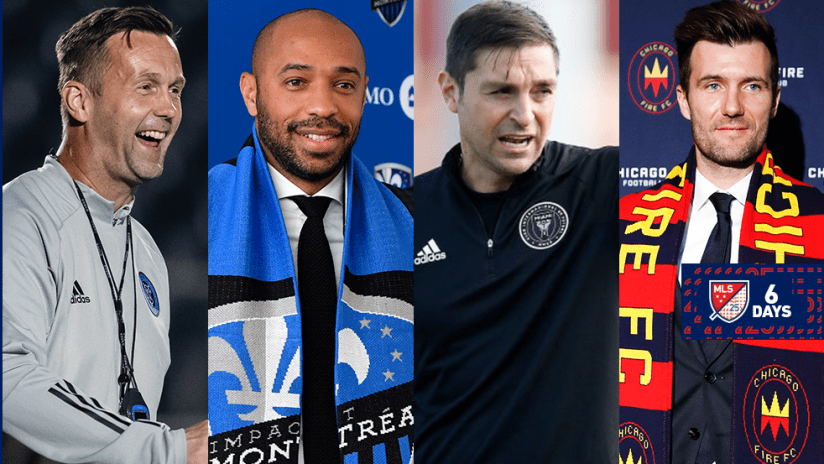EDITOR'S NOTE: Before you know it, February 29 will be here. That's the kickoff to the 25th season in Major League Soccer history and we're getting you ready for the 2020 campaign with the stories, personalities and questions that will leave their mark on the season to come.
“The long list of foreign failures reads like a who's-who of elite international managers. Despite proving themselves with some of the biggest clubs and national teams on the planet, the likes of Carlos Alberto Parreira, Bora Milutinovic, Juan Carlos Osorio, Carlos Queiroz and Hans Westerhof combined to win just one playoff series during their time in MLS.”
Those were the words of then-ESPN writer Doug McIntyre four years ago in a piece analyzing the arrival of foreign coaches Veljko Paunovic and Patrick Vieira to MLS, and they reflected a widely-held perspective across the league at the time.
MLS’s particularities were so different from overseas counterparts, the thinking went, that outsiders needed either years to learn and adapt, or the close attention of experienced executives and assistants to help them manage the league’s unique rules and conventions. Statistics showed that foreign coaches generally earned fewer points per game – but were also given less time in charge – than their domestic counterparts.
As the 2020 campaign arrives, that old conventional wisdom appears to have been truly blown to bits.
Of the seven new head coaches hired this offseason (leaving out FC Cincinnati and their unsettled situation), six of them hail from outside Canada and the United States. Of those six, four have zero MLS coaching experience, while Nashville’s Gary Smith and Orlando’s Oscar Pareja both possess a fair amount.
In contrast, the league’s five longest-tenured coaches – Ben Olsen (D.C. United), Peter Vermes (Sporting KC), Greg Vanney (Toronto FC), Jim Curtin (Philadelphia Union) and Brian Schmetzer (Seattle Sounders) – are all Americans, as well as former MLS or NASL players. Though all have carved out varying degrees of success to earn that longevity, lately they find themselves competing for honors with accomplished imports such as Diego Alonso (Inter Miami), Matias Almeyda (San Jose Earthquakes), Frank de Boer (Atlanta United) and Guillermo Barros Schelotto (LA Galaxy).

Tata Martino helped to usher in a new wave of foreign coaches to MLS | USA Today Sports
It’s not entirely a coincidence that this trend corresponds with rising levels of investment and ambition across the board in MLS, marked by explosive spending on acquisition of high-grade talent, facilities and infrastructure.
With no salary cap or roster limits on coaches, clubs appear to see managerial imports either as suitable shepherds for their increasingly-expensive players or important counters to other teams’ spending. In the process, these overseas arrivals often bring new ideas, cosmopolitan perspectives and useful international scouting networks with them. They’re also changing outside perceptions of MLS.
Soccer America dubbed it “the Tata effect” a year ago, noting the watershed impact of former Argentina and FC Barcelona boss Gerardo “Tata” Martino taking the Atlanta job when that club launched. The Five Stripes subsequently won MLS Cup 2018 and deployed some of the most exciting, up-tempo play the league has ever seen.
“Martino's success has spurred teams to look abroad for – and pay – coaches with a record of success,” wrote Paul Kennedy, “and his endorsement of Atlanta United – and by definition MLS – has legitimized the league in foreign coaching circles.”
Though he’s yet to lead San Jose to the trophy hoists he enjoyed in charge of Liga MX’s Chivas, the case of Matias “Pelado” Almeyda is also instructive. The charismatic Argentine steered the Quakes from woeful 2018 wooden spoon winners to playoff contenders last year with his unique man-marking tactical system. Now, he speaks highly of his experiences with both the club and league as he aims to push San Jose forward in 2020.
For their part, Quakes players have raved about Pelado’s influence on their individual and collective performance levels, just as Atlanta’s did with Tata and New York City FC encountered with Vieira.
Just as the rising tide of players from abroad has challenged the league’s domestic pool to step up, so it apparently also goes for coaches. And that looks like progress for all parties involved.











